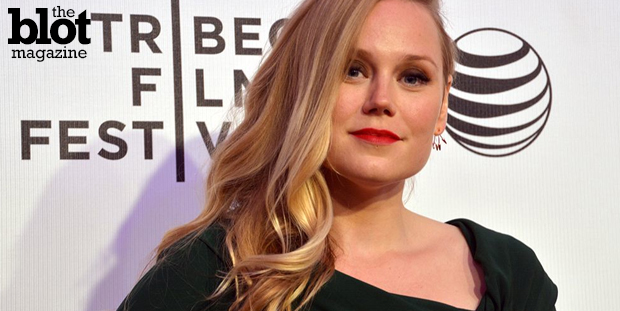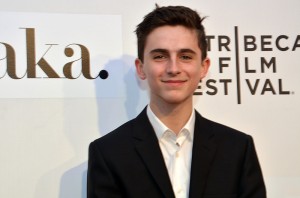
“The Adderall Diaries” is based on the bestselling 2009 memoir by author Stephen Elliott and premiered at the Tribeca Film Festival. It boasts an all-star cast and kudos to first-time director Pamela Romanowsky for picking such a complex book to tackle. It’s a film of crossover genres: romance, drama, murder, masochistic sexual tastes, twists and turns and an unreliable narrator.
I loved this indie from the second it began. The biggest draw was the cast. I’m a big Ed Harris fan, and he gave a powerful and layered performance as troubled father Neil Elliott to troubled son Stephen (James Franco). Aside from the acting, the strength comes from shifting perspectives, skewed memories and lies.
Anyone who has gone through a breakup or had an argument knows how differently two people can perceive the same event. Stephen’s memories are extreme but interspersed with drug-addled delusions.
As the movie begins, Stephen has published a wildly successful memoir about a cruel father who is supposedly deceased. Neil (Harris) bursts into a book signing like the “Here’s Johnny” scene from “The Shining” and calls the crowd idiots for believing Stephen’s lies.
Stephen, the drug addict, doesn’t like to be sober even for a minute. I can relate to that; it describes my teens and 20s well. Like most addicts, Stephen is angry and resentful. He’s also a screwed-up writer who stares at his endlessly unwritten blank pages. He feels grotesquely sorry for himself and blames his screwed-up-ness on his volatile father.
Memories are in slo-mo, and we watch helplessly as young Stephen — played by soon-to-be-a-heartthrob Timothée Chalamet — is abused. But then we see Neil’s memories of teenage Stephen smashing car windshields, shooting drugs and trying to kill himself by bleeding to death. Gory stuff.
As the story develops, Lana (Amber Heard), a reporter for The New York Times, meets Stephen at a murder trial he’s become fixated on. (Just an aside: I found it interesting that her name is Lana as Franco and Lana Del Rey are good friends.)
A father of two small children, played by Christian Slater, has been accused of murdering his wife, and Stephen decides he wants to write a true crime book about the murder case. When Stephen’s literary agent (Cynthia Nixon) discourages him, he points out, rather grandiosely, that both Truman Capote and Norman Mailer hit career highlights when they wrote about murders.
Meanwhile, Stephen freaks Lana out with his penchant for pain during lovemaking. When he wants Lana to strangle him till he loses consciousness, she gets creeped out. Who can blame her?
I’m looking forward to seeing much more from Romanowsky and enjoyed talking with her about actors, “The Adderall Diaries” and New York City for TheBlot Magazine.
Dorri Olds: You live in Brooklyn, correct?
Pamela Romanowsky: Yes, I’ve been a New Yorker for 10 years. I’m originally from Minnesota, but reached my New York City 10-year mark in January.
Did you come here to go to NYU?
Yes, kind of. I was a pre-med psyche major in college. My last semester, I thought it would be fun to go to New York and take a filmmaking class. Then I never left.
Was that the same film class where James Franco’s teacher gave him a D because Franco opted to make a film instead of attend class?
Yeah. James and I went to grad school in the same MFA program, and that’s where we met.
Can you talk about any of your funny only-in-New-York stories?
I have a couple of good ones. One is that my apartment is above my favorite bar, and it’s next to a clothing store that’s owned by two of my best friends who live above it. Our apartments are laid out in such a way that I can go out of my window onto their little roof deck and meet there for cocktails at the end of the day. There’s something about it that looks so much like a sitcom set that it makes me happy. It makes me think of being a teenager in a small town in Minnesota and never feeling like I fit in. There were images on TV of New York City and I thought, ‘That’s where you find your people. And you live in apartments next to each other and talk about art and eat dinner at midnight.’ There’s something really cool about that really being my life.
My other New York story is gross. I’d been here for six months, and I had not yet learned the critical lesson that flip-flops are not street shoes. [Laughs] I was walking down into the F train at 14th Street and didn’t notice this little mobile wash unit. I waltzed down the stairs and was hit with this high-pressure washer hose. I looked down, and on my chest was a condom and a Band-Aid. I was horrified and ripped off my sweatshirt and came running up out of the subway to get a cab. I jump off the curb to grab a cab, and my foot came down on something crunchy and squishy. I knew it was going to be something really gross. I looked down, and I’d stepped on a rat who was now dying on my foot while its little rat family surrounded us. I got in the cab and thought, ‘That was disgusting.’ I took a long shower and got up the next day and looked out over the East River and thought, ‘OK, I still love it here, and this is still where I want to be.’
Great stories! I’m a huge Ed Harris fan. Can you tell me what he’s like?
Yes, I’m also a huge Ed Harris fan! It was such a dream to work with him. He’s incredibly kind and supportive and very generous as a collaborator. The whole time I’d worked on the script, he was always my dream actor for the father. I never pictured anyone else in that role, which is not to say that I ever thought I was going to meet him or get to offer it. When I did get the chance it was extraordinary, and I told him this part was for him and I didn’t have a backup plan. I couldn’t imagine anyone else playing it. It took me about nine months to talk him into it.
On set, he is extraordinary. It’s such a privilege to watch an actor work like that. In his scenes with James, my jaw would just be on the floor. We’d walk through the scene and block it and rehearse a little bit, and then the second we were rolling it was just like lightning striking. Off set, Ed and James are incredibly kind, and on screen were so intense. They gave so much of themselves and dove straight into the deep end.
After a take, did everybody just go right back to being themselves?
Each actor, myself, the crew — everybody has their own means for how they recover from an emotional take. For me, I like the set to be really quiet and peaceful. Ed would sometimes play catch with the PAs [production assistants] between set ups, but would usually remain pretty serious between takes. It was a small set and crew, and we were in tiny New York spaces, so between takes everybody seemed to stay pretty focused. When the cameras weren’t rolling, we were all great friends, and it was lots of fun.
Did each actor contribute ideas to the script?
Yeah, I think each actor brought so much of themselves to their characters. I like to work in whatever way is most comfortable for each actor. Some actors stay true to the dialogue as written, some change the phrasing, some will add lines. Totally depends on the person.
Who did what?
James was a great improv-er. I also know him the best, and he knows the story the best, so most lines that were not in the script were James’s additions. Everybody had freedom to find their own voices. As a director, I’m always interested in the emotional truth of a scene, and I don’t get precious about the writing. It was easy for the writer — me — to give the permission to the director — me — to throw the script away when it wasn’t helpful.
Watch excerpts from this interview:
Dorri Olds is a contributing journalist for TheBlot Magazine.











